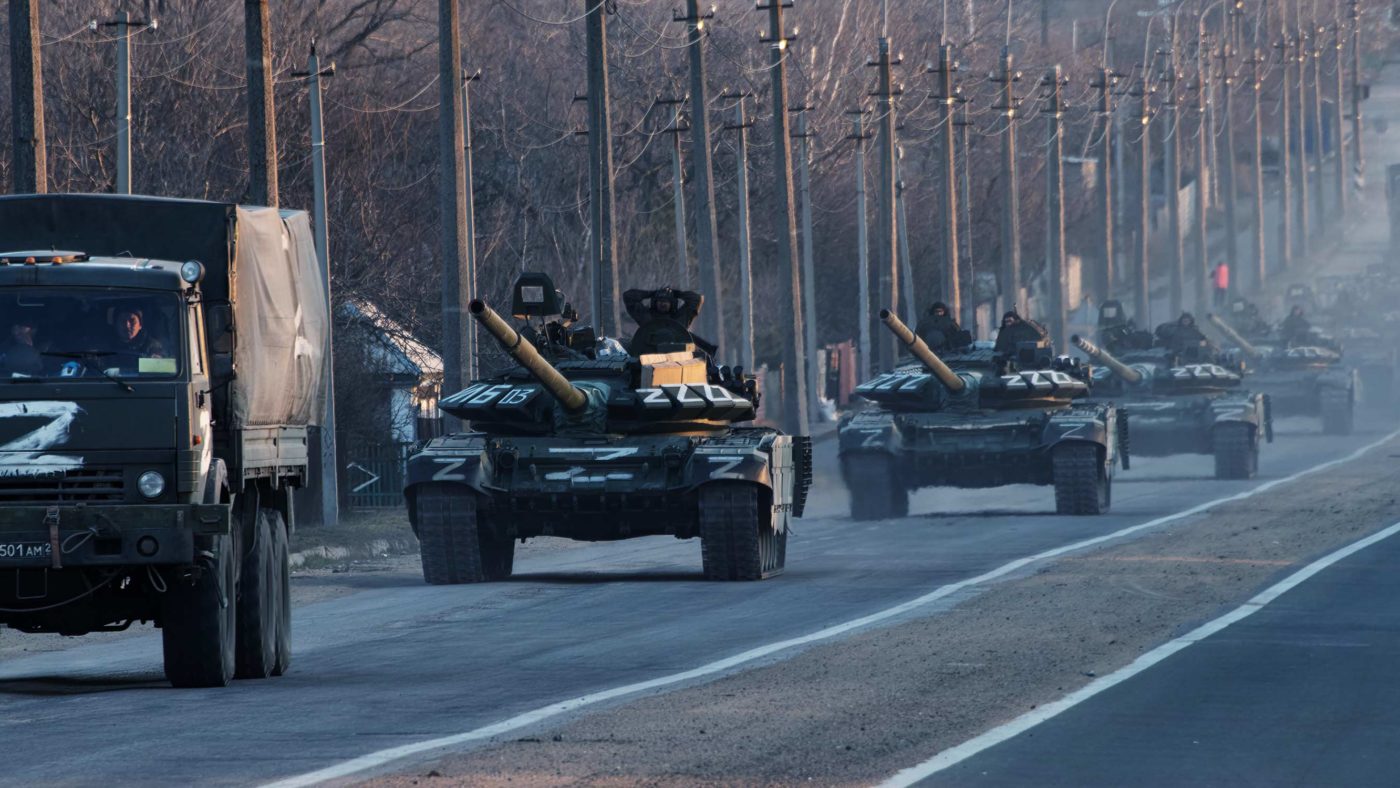‘Blame the West’ arguments about foreign wars tend to proceed under various banners, with the anti-colonial left usually in the lead.
When it comes to Ukraine, however, it’s chiefly figures in the ‘Realpolitik’ tradition who are providing intellectual support for the idea that the West, not Russia, is really to blame for the conflict. A 2015 lecture by the University of Chicago’s John Mearsheimer, a prominent advocate of Realpolitik, has gone viral as a guide to understanding the supposed causes of Ukraine’s predicament.
In Mearsheimer’s view, Western powers (mainly the US) have the primary responsibility for the 2014 annexation of Crimea and the ongoing Russian invasion of Ukraine. Russia, according to Mearsheimer, was pushed into a corner and left with little choice but to act the way it did. Western powers poked the Russian bear in the eye, to use his expression, when they should have known better.
In a recent interview for the New Yorker, Mearsheimer rehearses the same arguments:
“Nato expansion is the heart of the strategy, but it includes EU expansion as well, and it includes turning Ukraine into a pro-American liberal democracy, and, from a Russian perspective, this is an existential threat”.
The crux of the Realpolitik view is that Western support for Ukraine’s self-determination, and making its own decisions on whether to join Nato or the EU, is inherently a threat to Moscow.
If we accept that Ukraine joining these Western institutions does constitute an ‘existential threat’ to Russia, then Russia cannot be blamed for reacting in a violent manner to such manifestations of self-determination. Indeed, it’s the West’s fault for encouraging Ukraine down such a dangerous path.
One may wonder, however, why the expansion of Nato, the EU and liberal democracy would present a threat to Russia, let alone an existential one? Does any one seriously contemplate that, as a member of Nato, Ukraine would be tempted to invade or threaten Russia militarily?
It is an unlikely prospect, to put it mildly.
The one thing that would become more difficult if Ukraine joins Nato is Russia invading Ukraine. Should the West really block Ukraine’s accession just to preserve Russia’s option to invade again in the future?
There is indeed a threat posed by the expansion of Western style liberal democracies to today’s Russia. It is not, however, a threat to Russia as a country and its people, but to Putin’s autocratic regime.
From a Realpolitik perspective, a threat to the existing regime carries a lot of weight. After all, it is Putin and his shrinking inner circle who call the shots and who hold the keys to war and peace. In this view, this small group are the ‘Russian bear’ that matters and the one that West should try not to enrage.
If that is the real Realpolitik position on the Ukrainian crisis, then it fails to make the case for blaming the West. Given that joining Nato and the EU poses no real threat to Russia as a country, it’s wrong to say that pursuing those aims has ‘cornered Russia’ or left it with no option but to act in self-defence. In truth, the Realpolitik position simply caters to the needs and interests of the Putin regime.
But even then, blaming the West for encouraging a threat to Putin’s regime isn’t a strong argument either. Regimes as such don’t have a right to self-defense. A dictatorship, for example, does not have the right to defend itself against a popular up-rising by the use of force. The right of a given regime to act militarily on defensive grounds is bound up with the right to defend the interests of the country or people on whose behalf the regime claims to act. In this case, Putin is manifestly not acting his country’s best interests.
It’s entirely clear that the use of force against Ukrainians to prevent them from joining NATO or EU cannot be justified on grounds of self-defence. There should therefore be no doubt about who the aggressor is here, and on whom the blame squarely falls.
Mearsheimer’s position may be reformulated as follows: ‘Even if Putin is not defending the interests of the Russian people, but only his own interest in maintaining his grip on power and protecting his regime, and even if his actions are unjustified, the Ukrainians and the West should have anticipated Putin’s reaction and tried to avoid it.’
On the above reformulation of Mearsheimer’s position there is no question as to who the culpable party is. It only raises the question as to whether the Ukrainian and their Western backers should have confronted or appeased Putin’s aggression or unjustified demands.
It would have been more understandable had Mearsheimer presented the issue in these terms and argued that political realism recommends appeasing Putin’s unjustified demands and aggression, in light of some assessment of the associated costs and benefits involved. Instead, he opts for muddying the moral waters by placing the blame on the West, while portraying Putin’s behaviour as a perfectly understandable reaction to existential threats. This is not an exercise in political realism. It is, at best, an act of moral self-deception.
Click here to subscribe to our daily briefing – the best pieces from CapX and across the web.
CapX depends on the generosity of its readers. If you value what we do, please consider making a donation.


